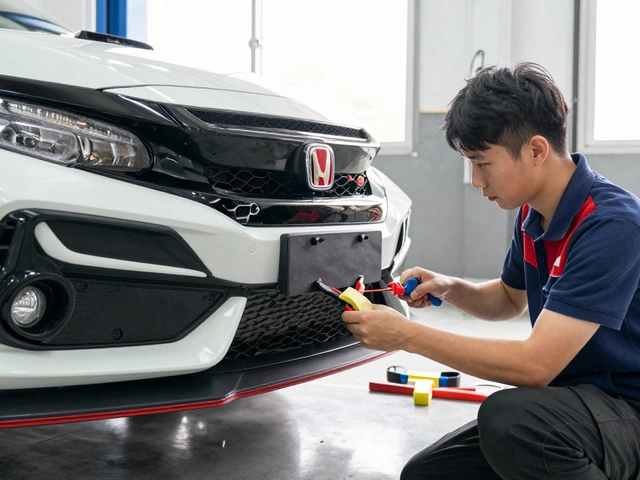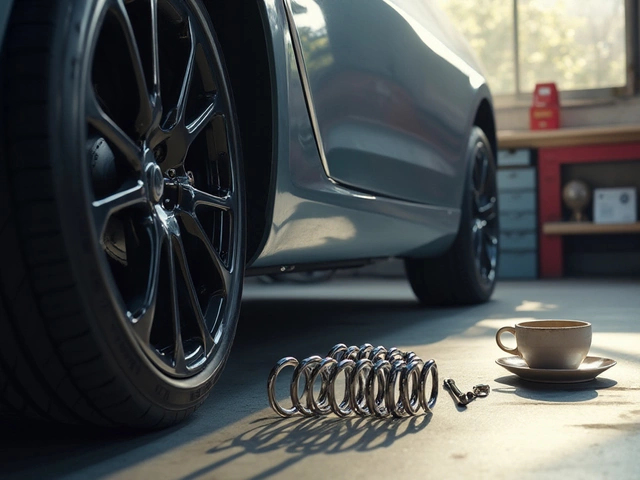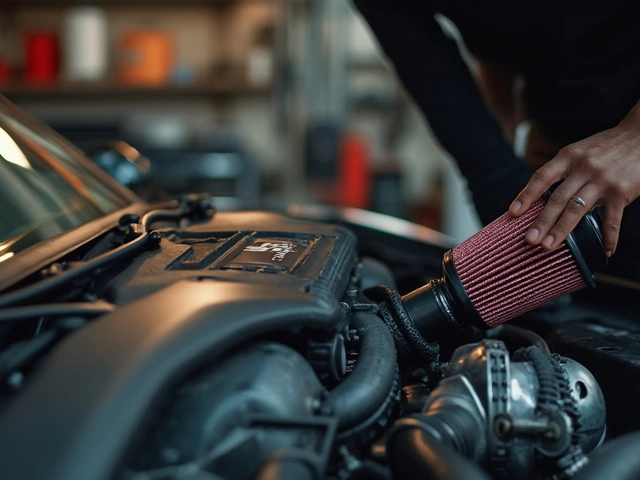Ever tried to figure out what kind of wheels your car should have? With names like 'alloy wheels' and 'normal wheels' popping up, it can get pretty confusing. But hang tight, because I'm here to help you sort it out. It might surprise you how much of a difference the right wheel can make on your ride.
First up, let's talk materials. Regular wheels, those trusty steel ones, are usually heavier, which can affect fuel efficiency and handling. Cars you see in the day-to-day grind often rock these wheels because they’re durable and can take a beating—like that nasty pothole down your street. But if you're into something lighter and snazzier, alloy wheels might catch your eye. They're lighter due to their aluminum or magnesium mix, and they sure look pretty sleek.
But wheels aren't just a pretty face. They play a big role in driving performance. Alloy wheels, being lighter, could give you a smoother ride and better cornering if you're a fan of taking those turns with a bit more zest. So, while deciding between regular and alloy, think about how you like your driving experience. Serious speedster or chill city cruiser? The right choice can make a world of difference.
Material Matters
Alright, let’s break it down on what makes your wheels, well, wheels. The type of material used in wheel construction not only defines how they look but also how they perform. Regular or steel wheels are like the workhorses of the wheel world. Made mostly from iron and a bit of carbon, they’re heavier and pretty darn durable. Think of them like your favorite pair of work boots—they might not be flashy, but they get the job done.
Now, alloy wheels are the sports car version of wheels. They're usually made from a blend of aluminum or magnesium with other materials. This makes them lighter, which can totally impact your car’s acceleration and braking. Less weight means less work for your car when it comes to stopping and going. Plus, their casting process allows for cooler designs, which is always a bonus if you're into aesthetics.
Here's something you might not know: the difference in weight between an alloy and a steel wheel can sometimes be several kilograms. When you're saving that much weight on each wheel, it adds up! That means not only do you get a smoother ride, but your fuel efficiency might get a little boost, too. It's like swapping a heavy backpack for a lighter one and feeling the difference as you move around.
One thing to keep in mind though—it's not all sunshine and rainbows with alloy wheels. Sure, they're lighter and look better, but they can also be more prone to dents and cracks. That’s because they’re not as tough against impact as steel. So if you live somewhere with gnarly roads filled with potholes, you might end up visiting your mechanic a bit more often.
At the end of the day, whether you go for alloy or steel depends on what you prioritize. Need something that can handle rough and tough conditions? Maybe steel’s your best bet. Want performance and style? Then alloy might be calling your name.
Driving Performance
Alright, let's dig into how wheel choice impacts your ride's swagger. You know those mornings when you’re late, and you want every stoplight to be green? Well, the wheels you choose can make those rides a tad more enjoyable, or at least, less stressful.
Alloy wheels have this cool ability to improve your car’s agility. Thanks to their lighter weight, your vehicle gets to accelerate and brake a bit quicker. It’s like shedding a few pounds before a sprint—you just feel faster. This also means better fuel efficiency, a win for both your wallet and the environment.
Now, don’t get me wrong. Those trusty steel wheels, often called regular wheels, have a sturdy charm that suits many cars. But they do pack extra weight, which can slightly dampen speed-focused performance. Think of it as trading off some nimbleness for durability.
Some folks swear by the improved cornering they get with alloy wheels. If you're frequently on winding roads or enjoy a spirited drive, it’s something to ponder. The lighter these wheels are, the more leverage they provide for sharper, more confident turns. Car enthusiasts often find this particularly thrilling.
Speaking of performance, imagine this: You're headed down a slick road after a surprise drizzle. Quick thinking and responsive steering could keep everything in control. With alloy wheels, the enhanced handling might just give you the edge you need. A little peace of mind never hurts, right?
Considering all these factors, choosing the right wheels isn't just about appearance—though that matters too. It's about how you drive, where you drive, and the kind of experience you crave. So next time you're cruising down the highway or just doing the school run, know that your wheel choice is playing a pretty big part behind the scenes.
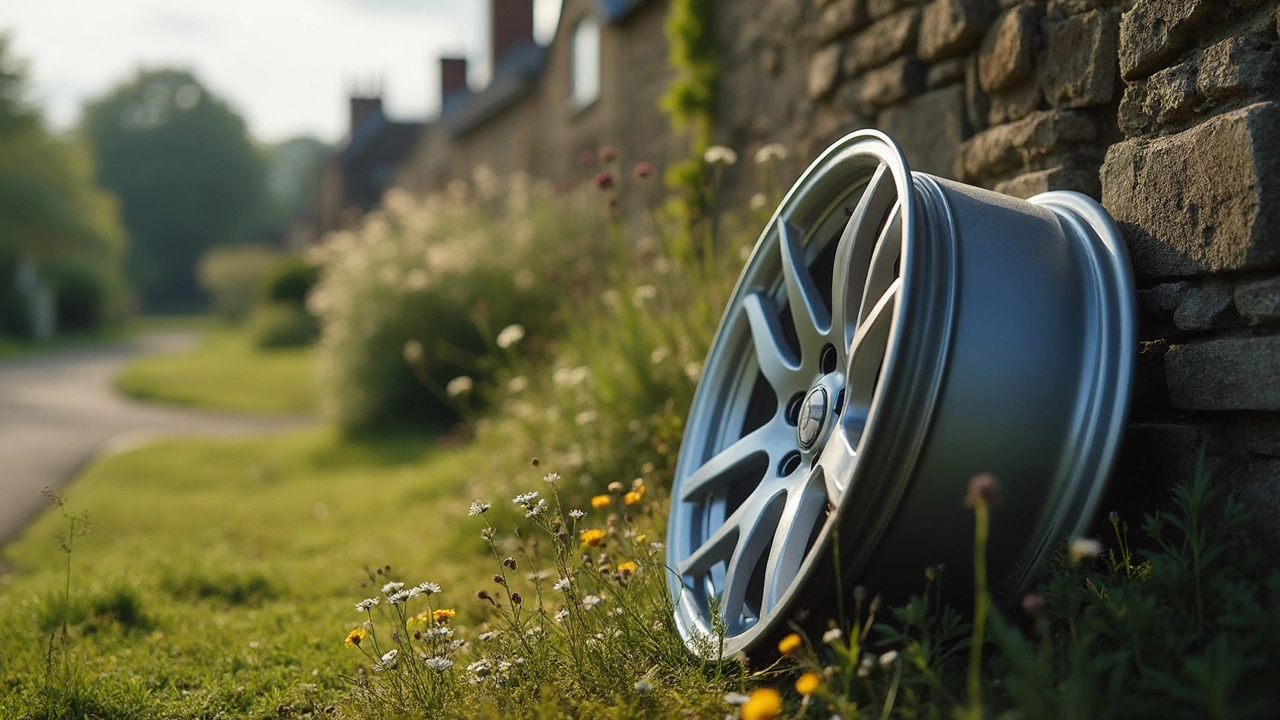
Aesthetic Appeal
Let's face it, looks matter. When it comes to car *aesthetic*, what your wheels say can be just as important as the car itself. Alloy wheels are like the fancy shoes of the car world. They offer a variety of styles, finishes, and designs that can seriously upgrade your car's look. Think of shiny chrome finishes, sleek black rims, or intricate spoke designs—these wheels have a flair that steel wheels often lack.
Standard regular wheels tend to have a more straightforward, utilitarian design. They get the job done, but if you're looking to make your vehicle turn heads, alloys are typically the way to go. They let you express your personality and taste in a tangible way. You'll find they can be a significant attraction factor, making even a common model stand out among the crowd.
Now, you might wonder if this style upgrade comes at a cost. Well, yes, it often does. The price of alloy wheels sometimes reflects their looks and the prestige they offer. However, for many, this added style boost is worth the investment, adding a dash of luxury and a personal touch that's hard to match with regular wheels.
Lastly, don't underestimate the power of first impressions. Alloy wheels can often be the difference between a car that simply functions and one that truly shines. So, if you're itching to enhance your car's visual appeal, considering alloys is definitely worth a thought, especially if you want to add some pizzazz without doing a full vehicle makeover.
Cost and Maintenance
When it comes to comparing alloy wheels and regular steel wheels, cost and maintenance are big factors you gotta think about. Let's be real: you can't ignore the wallet factor. So, what should you expect when it comes to paying for these wheels and keeping them in good shape?
Alloy wheels tend to be pricier from the get-go. Their sleek look and lightweight performance don't come cheap. But before you run for cover thinking about the cost, remember they might give you some savings long-term thanks to better fuel efficiency.
Maintenance-wise, alloy wheels need a bit more TLC. They're more prone to scratches and can crack if you hit the curb too hard. You'll want to clean them regularly using non-abrasive cleaners to keep them shining. With that in mind, here's a quick rundown of what to consider:
- Regular Wheels: Lower initial cost, more durable with fewer worries about scratches or curb rash.
- Alloy Wheels: Higher cost upfront, lighter and stylish, but need regular cleaning and are more delicate.
Here's a fun tidbit: aluminum alloy recycling is a thing, which makes alloy wheels not just sexy but also a bit eco-friendly if you're into that. Over time, though, keep an eye on potential corrosion, especially if you're driving where the roads get salted in winter.
So, deciding on cost and maintenance is a balancing act. It boils down to whether you prefer style and performance or a tougher, low-cost fighter for your car. Just weigh what's more important to you, and you'll be cruising down the road in no time with the perfect wheels for your ride.
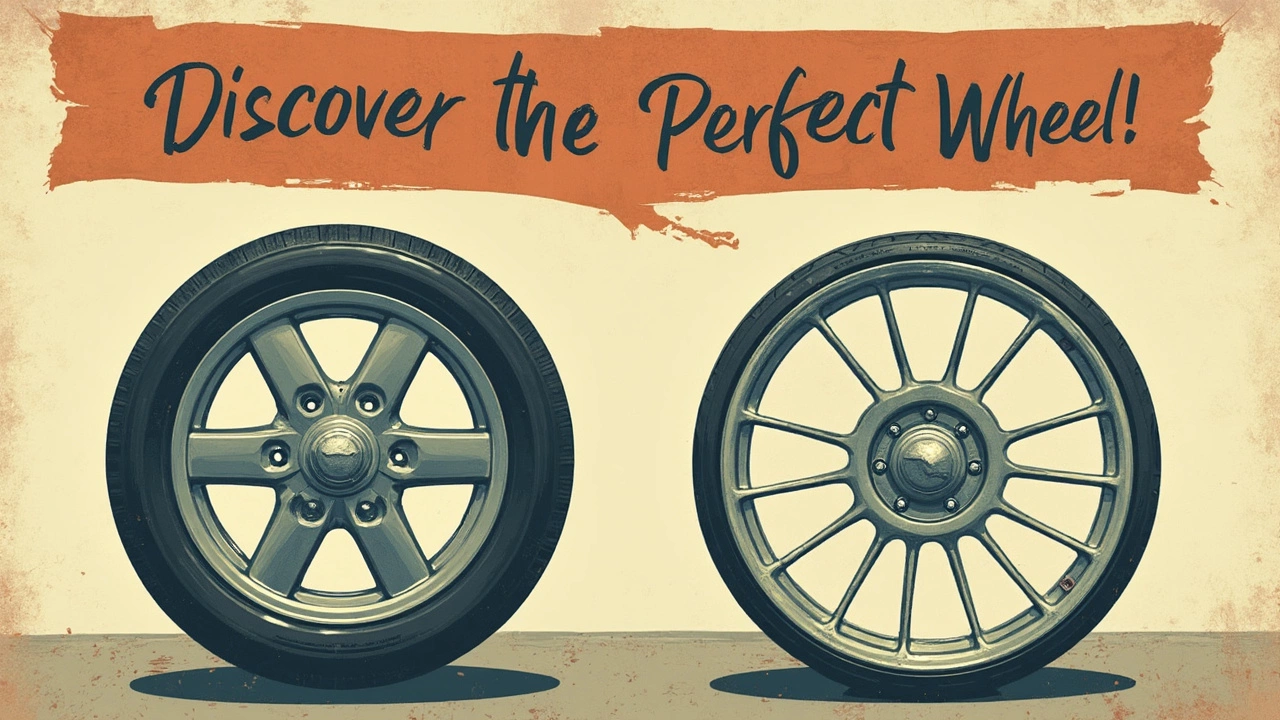
Choosing the Right Wheel
So, you're thinking about picking wheels for your car—it's not just about making it look cool. It really is important to get this right. Whether you go for alloy wheels or stick with the regular ones, you should think about a bunch of factors that will make sure your choice fits your needs.
First off, consider your driving habits. If you're someone who enjoys a bit of zipping around with improved handling, alloy wheels might just win you over. Their lighter weight can help improve acceleration and reduce the strain on your brakes. However, if your car is mainly for family rides or runs a lot of long highway miles, regular steel wheels can be a budget-friendly option that can take everyday wear and tear.
Next up, let's talk about the weather. If you live somewhere with rough winters, steel wheels might be more your style. They're tough against road salts and won't corrode as easily. Meanwhile, alloy wheels can be awesome in areas with milder climates due to their resistance to rust.
Budget plays a crucial role too. Sure, alloy wheels can be pricier upfront, but with potential savings in fuel economy and performance, the cost could even out over time. Regular wheels are generally easier on the wallet if you’re keeping an eye on your car expenses.
Here's a simple rundown of some things to keep in mind:
- Purpose: Why are you upgrading? Aesthetic appeal, performance, or both?
- Terrain and Weather: Consider your local conditions—city streets or rougher rural areas?
- Budget: Look at the initial cost versus long-term performance benefits.
- Maintenance: Keep in mind the upkeep, especially if you choose alloy wheels, which might need more care.
By keeping these points in mind, you'll be better armed to choose the set of wheels that works best for your ride. Remember, it’s not just about looks; it's about finding the right balance between performance, durability, and cost. Happy rolling!


